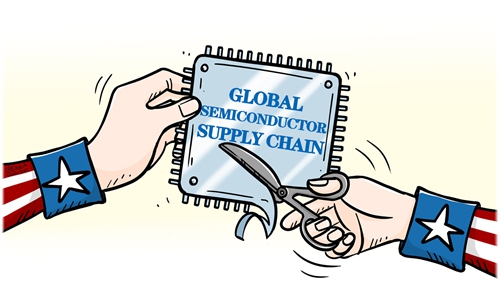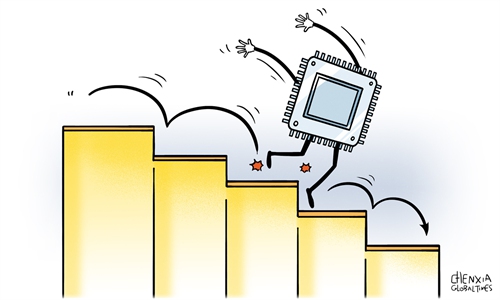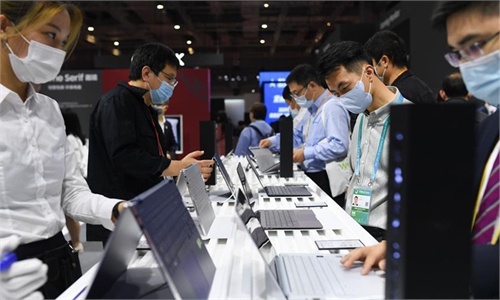
chip Photo:VCG
The Japanese government's move of proactively following the US' lead by being part of Washington's "tech decoupling" from China will put its enterprises, which are trying to expand in the world's largest semiconductors market, in the crosshairs, experts told the Global Times.
There are reports that Tokyo plans to start restricting exports of advanced semiconductor manufacturing equipment to China this spring, though the reported regulation will not mention China specifically.
The curbs will come after the Japanese government amends a ministerial ordinance under the Foreign Exchange and Foreign Trade Act - which requires permission from the Minister of Economy, Trade and Industry when exporting certain products and technologies - to prevent manufacturing equipment from being utilized to make semiconductors, the Japan Times reported on Sunday, citing multiple government sources.
The government will solicit opinions from companies and other related parties to introduce the new regulation in the spring, the report said.
The reported move comes after Japan agreed to align with the Biden administration, to contain China's semiconductor sector growth.
On January 27, the US reached a secret agreement with the Netherlands and Japan to restrict exports of some advanced chip-making tools to China, including advanced lithography tools, Bloomberg reported. The agreement would extend some export controls the US adopted in October 2022 to companies in the two countries, including ASML, Nikon and Tokyo Electron.
Details of the deal have not been made public.
The Japanese government's reported move to comply with the US' order will come at the cost of its companies, which have made massive revenues in the Chinese market and still have opportunities to see their business continue to grow, Bai Ming, deputy director of the international market research institute at the Chinese Academy of International Trade and Economic Cooperation, said.
Tokyo Electron, a major supplier of chip-making equipment along with the US' Applied Materials and the Netherlands' ASML, has said that China is a very important market for the company, accounting for more than one-quarter of its annual revenues.
"Unlike the Netherlands, which was forced to give up its businesses, Japan's restrictions on the export of semiconductor equipment to China are more voluntary," Bai noted.
A leading Dutch trade official said the Netherlands "will not summarily accept new US restrictions on exporting chip-making technology to China," and is consulting with "European and Asian allies," Reuters reported on January 17.
ASML said that the measures would not have a material effect on the company's announced expectations for 2023.
"Our business in China is predominantly directed at mature nodes... Meanwhile, ASML's business activities globally will continue. What we need now is stability and reliability in our industry to avoid further disturbances in the global semiconductor industry," the company said in a statement to the Global Times earlier.
Global Times



